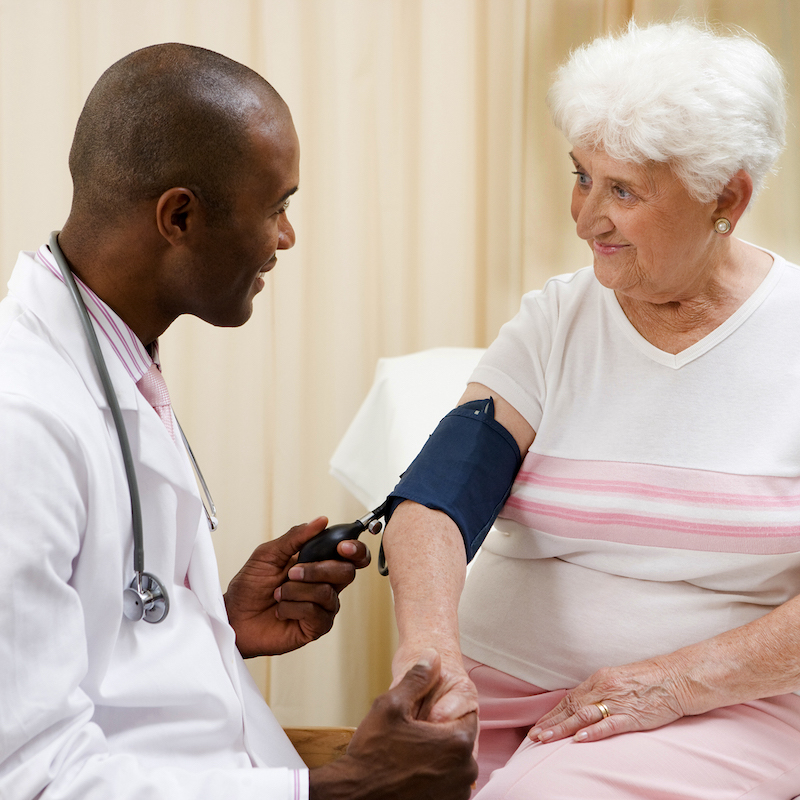Hypertension (High Blood Pressure)

Hypertension, also called high blood pressure, affects almost half of U.S. adults. Over time, it can damage the heart, blood vessels, kidneys, and other parts of the body. Complications can include heart attacks, heart failure, stroke, and chronic kidney disease. High blood pressure is managed with lifestyle changes including healthy eating, being physically active, maintaining a healthy weight, limiting alcohol intake, and managing and coping with stress. If lifestyle changes alone don’t lower blood pressure enough, medicines may be used to treat the disease.
Bottom Line
Some complementary health approaches are showing promise as elements of a program of lifestyle change to help lower blood pressure.
- Research results suggest that some complementary health approaches, such as meditation, tai chi, qigong, and yoga, may have small beneficial effects on blood pressure in people with hypertension. It’s uncertain whether relaxation techniques are helpful.
- In 2013, the American Heart Association suggested that biofeedback and Transcendental Meditation, used in addition to conventional medication, can help people lower their blood pressure.
- Research results suggest that certain foods and dietary supplements, including cocoa, garlic, fish oil (omega-3 fatty acids), flaxseed, green or black tea, probiotics, and the herb roselle (Hibiscus sabdariffa), may help reduce blood pressure in people with hypertension. However, the evidence that these products can lower blood pressure is limited, and the effects of the products on blood pressure are small. No dietary supplement has been shown to have effects comparable to those of drugs used to treat hypertension.
Safety
If you have high blood pressure, it’s important to follow the treatment plan prescribed by your health care provider. Following your treatment plan is important because it can prevent or delay serious complications of high blood pressure. Don’t replace your prescribed treatment with an unproven product or practice. If you’re considering a complementary or integrative approach for your high blood pressure, discuss it with your health care provider.
Tell your health care provider about all dietary supplements that you’re taking or considering. Some dietary supplements, such as the herbs bitter orange, ephedra, ginseng, and licorice root, may raise blood pressure, and some supplements may interact in harmful ways with medicines, including medicines used to treat high blood pressure.
Complementary health approaches, such as tai chi and yoga, are generally safe for healthy people if properly performed by a qualified practitioner or taught by a well-trained instructor. However, some approaches may not be appropriate for people with health conditions. For example, people with high blood pressure may need to modify or avoid some yoga poses. If you have high blood pressure, talk with your health care provider and your complementary health practitioner or instructor if you’re considering a complementary health approach.
For more information on high blood pressure, visit the National Heart, Lung, and Blood Institute website.
For More Information
NCCIH Clearinghouse
The NCCIH Clearinghouse provides information on NCCIH and complementary and integrative health approaches, including publications and searches of Federal databases of scientific and medical literature. The Clearinghouse does not provide medical advice, treatment recommendations, or referrals to practitioners.
Toll-free in the U.S.: 1-888-644-6226
Telecommunications relay service (TRS): 7-1-1
Website: https://www.nccih.nih.gov
Email: info@nccih.nih.gov (link sends email)
Know the Science
NCCIH and the National Institutes of Health (NIH) provide tools to help you understand the basics and terminology of scientific research so you can make well-informed decisions about your health. Know the Science features a variety of materials, including interactive modules, quizzes, and videos, as well as links to informative content from Federal resources designed to help consumers make sense of health information.
Explaining How Research Works (NIH)
Know the Science: How To Make Sense of a Scientific Journal Article
PubMed®
A service of the National Library of Medicine, PubMed® contains publication information and (in most cases) brief summaries of articles from scientific and medical journals. For guidance from NCCIH on using PubMed, see How To Find Information About Complementary Health Practices on PubMed.
Website: https://pubmed.ncbi.nlm.nih.gov/
National Heart, Lung, and Blood Institute (NHLBI)
The NHLBI Health Information Center provides information to health professionals, patients, and the public about heart, lung, and blood diseases and sleep disorders and accepts orders for publications.
P.O. Box 30105
Bethesda, MD 20824-0105
Toll-free in the U.S.: 1-877-NHLBI4U (1-877-645-2448)
Website: https://www.nhlbi.nih.gov
Email: nhlbiinfo@nhlbi.nih.gov (link sends email)
This publication is not copyrighted and is in the public domain. Duplication is encouraged.
NCCIH has provided this material for your information. It is not intended to substitute for the medical expertise and advice of your health care provider(s). We encourage you to discuss any decisions about treatment or care with your health care provider. The mention of any product, service, or therapy is not an endorsement by NCCIH.